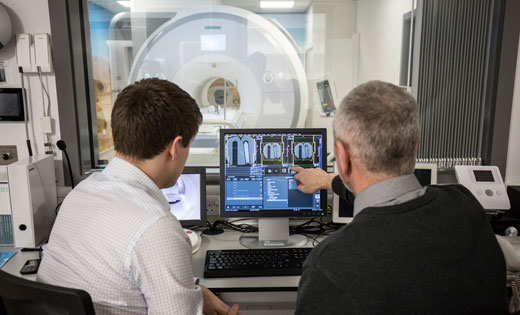New medical scanner promises new insights into the human body and advances in disease diagnosis.
A new £6.8 Million medical imaging centre has just opened at Leeds General Infirmary as part of a University of Leeds research initiative funded by the British Heart Foundation, Arthritis Research UK and the Medical Research Council (MRC).
Following a year of research, the new technique known as SABRE (Signal Amplification by Reversible Exchange), was developed by scientists and experts at the University of York and Hull York Medical school. The centre will use the new quicker and more precise technique to diagnose and treat patients with suspected cancers, heart and musculoskeletal diseases.
SABRE will work alongside current MRI scans, increasing MRI signals by more than 200,000 times. By altering naturally occurring drugs or substances in the body, without changing their molecular structure, the new method is very quick, effective and safe for the use on patients.
The benefits of more accurate scanning techniques are clear, with Cancer Research UK claiming that “late detection of cancer can reduce chances of survival by about half”. The new imaging centre will give a more precise insight into the patient’s internal health issues in order to diagnose and treat patients as quickly as possible.
The new technique will also allow medical practitioners to clearly pinpoint health problems in patients, increasing the effectivity of drugs developed to treat patients who have been scanned using SABRE.
As Professor Sven Plein, Research Team Leader at the University of Leeds, School of Medicine, said: “This is a great example of bench to bedside research that we hope will have a profoundly positive impact on the lives of patients”.
Ultimately, the Yorkshire developed technique aims to be used across the UK and globally to revolutionise the lives of patients, with a view to providing a low cost, effective alternative to current medical scanning methods.
The School of Medicine is not alone in receiving large scale investment and world leading innovation. £17m worth of equipment is to be installed in the Astbury Centre, allowing molecular biologists to further study bacteria, viruses, and the macromolecules that dictate the life and health of our cells.
The University anticipates that their new equipment will be sought after by researchers in Europe and beyond.
Camille Hanotte
(Image: University of Leeds)

